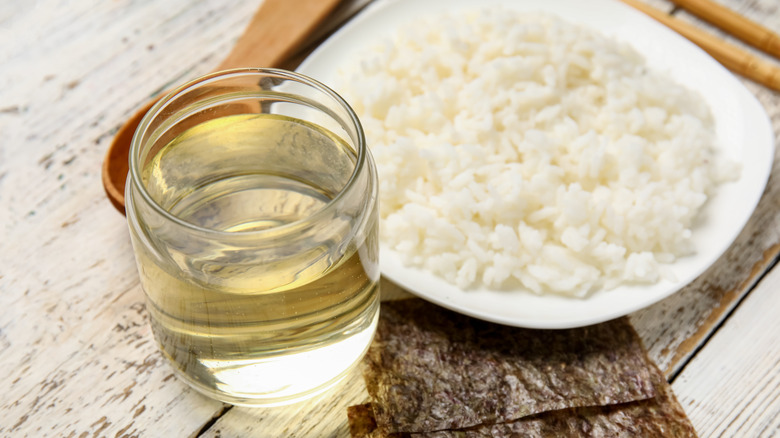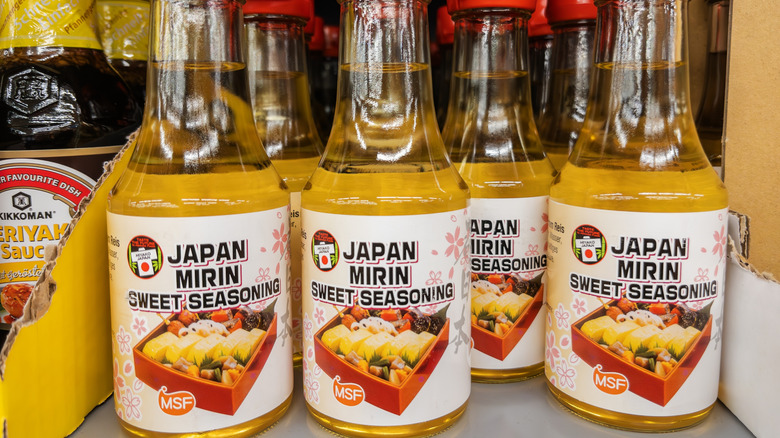Rice Vinegar Vs Rice Wine Vinegar: Is There A Difference?
There are literally dozens of vinegars available to cook with, and each one has a unique application that helps their flavors shine. Think about it; isn't a plate of fresh tomatoes and mozzarella improved by a drizzle of balsamic vinegar on it? What about a fresh deli sub (the most American sandwich) doused in oil and red wine vinegar or a secret splash of apple cider vinegar on baked goods to take their flavor over the top?
Although there is vinegar for every job in the kitchen, it is easy to get confused with every option there is to consider. It is especially easy to get a bit muddled when you come across rice vinegar and rice wine vinegar in a recipe — surely the very similar names must mean they aren't too different, right? The good news is that rice wine vinegar and rice vinegar are one in the same, so you don't need to run out for another bottle.
Two names for one vinegar
Though the names may be misleading at first, they make sense when you consider the process of making vinegar. This common household flavor enhancer is made by fermenting a liquid into wine, and then it goes through a process that converts the alcohol into acetic acid.
The process of making rice wine vinegar starts with rice that is fermented into wine, such as sake, which is then processed into vinegar. The end result is a mildly tangy and slightly sweet vinegar that is extremely versatile, from making pickles and dressings to seasoning rice for sushi
Both names are technically correct since the production process includes rice and rice wine, though I would personally opt to save the extra syllable. However, a few other ingredients you can find in the Asian foods aisle are easy to confuse with rice wine vinegar.
Double check your labels
You may not have to worry about the difference between rice vinegar and rice wine vinegar, but you should avoid accidentally picking up seasoned rice wine vinegar when at the grocery store.
Seasoned rice wine vinegar does include normal vinegar, but it is also flavored with sugar, corn syrup, salt, and MSG. This gives you a more prominent flavor of the natural sweetness of rice vinegar but without all the acidic tang. Seasoned rice vinegar is often used in sushi rice and to make dipping sauces, but it is not as versatile as regular rice vinegar because of the added ingredients. Using seasoned rice vinegar instead of the unseasoned variety will produce a much sweeter dish, which could imbalance your recipe.
You may also see mirin stocked right next to rice vinegar in the grocery store, and although they also look very similar, they are also not interchangeable. Mirin is a sweetened rice wine for cooking, almost like seasoned rice vinegar without the acidity.


